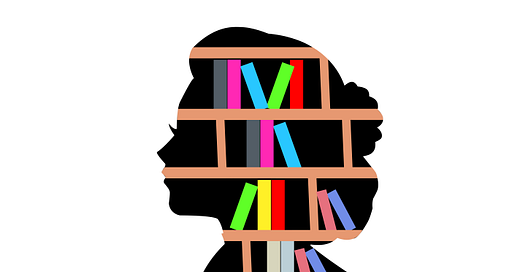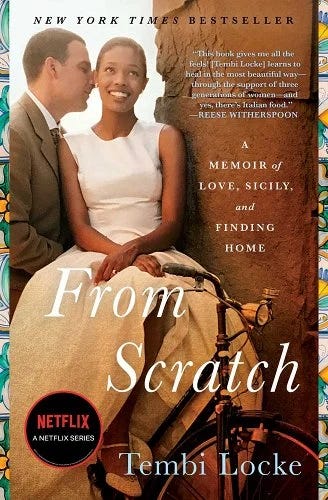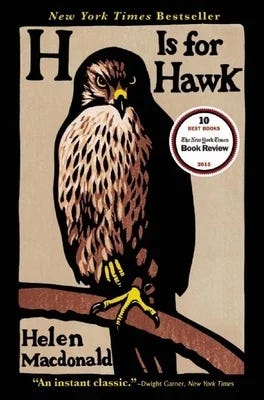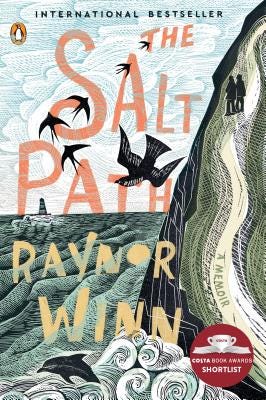“Nobody wants to hear about anybody else’s grief.” Or so says Vivian, narrator of Elizabeth Gilbert’s novel, City of Girls.
Ahem. I respectfully disagree. I love to read books about loss. I’m talking devastating, life-altering losses, like the death of a partner or parent, financial ruin, eviction—but also, the less visible kind, like the loss of identity, innocence, or faith. Grief is part of all of these stories; it has to be, and I’ll admit, is part of the draw for me.
That said, I also agree completely with Vivian, when she goes on to add that “there’s a level at which everyone’s grief is the same anyway,” and elects to spare her reader the “details” of her “sadness.”
I have very limited patience for elaborate depictions of that initial, hazy stage of grief that follows a death, the bit that’s all about weeping, and shock, and incomprehension. It’s a universal part of the experience, yes…but it’s just the beginning. The rivers of tears, the old shirt or song that brings up memories (with bittersweet emotions to match), the rage at the universe, the rush of guilt that comes with the first time you genuinely laugh after a funeral…these are the most easily understood and socially accepted parts of grief as it relates to this sort of loss. The palatable, straightforward parts that trigger sympathy or recognition in the reader, depending on their experience.
I’m much more interested in what comes after, or lies buried under, this level of grief. Memoir is my go-to genre for this sort of exploration; the best ones, I think, go well beyond the details of the writer’s loss and its raw, immediate, emotional aftermath, and put their individual experience into a wider context. They make you think and laugh, as opposed to (or as well as) cry.
I can’t get enough of memoirs like this, so you can expect to see more of them in future. But for now, here are three I’ve read (and loved) recently.
From Scratch: A Memoir of Love, Sicily, and Finding Home by Tembi Locke
An art history major with dreams of becoming an actress, Tembi Locke decides to spend a semester abroad in Florence, where she soon meets the love of her life: Saro, a handsome Sicilian chef twelve years her senior. While she knows, from the very beginning, that their “long-distance, bicultural, bilingual, biracial” relationship would come with challenges, she is floored by his father’s response to their wedding invitation, which is simply: “I have no son.”
Years later, Locke returns to Sicily with her husband’s ashes—and their adopted daughter, Zoela—with high hopes and more than a few misgivings. “Everything that would pass between Nonna and me in the coming weeks would determine whether Sicily remained part of Zoela’s past or could also be part of her future. Anyone could see that the three of us—mother, daughter-in-law, and granddaughter—formed a grief triad, that we were swimming on dry land. It was a dangerous place to start from.”
Of course, I refuse to spoil what happens next, but I will say this: this book will make think about all the different ways families can come together, and how ‘home’ means something quite different from one family to another.
It will also make you hungry. Nonna, like her son, is most at home in the kitchen, and communicates through her cooking. There are so many delicious descriptions of food here that I often found myself wandering into the kitchen with the book in one hand, and opening the fridge with the other. (Personally, I hate cooking but if you love it, you will be delighted to find that the final chapter is devoted to traditional Sicilian recipes.)
H is for Hawk, by Helen Macdonald
A few months after her father’s sudden, wholly unexpected death, Helen Macdonald begins to dream about a goshawk she encountered years ago, in her work at a bird-of-prey centre. This goshawk was beautiful: “beautiful like a granite cliff or a thundercloud…and intimidating as hell, even to staff who spent their days tending eagles. So wild and spooky and reptilian.” Night after night, she dreams about the precise moment she released that hawk back into the wild, and watches her disappear “over a hedge slant-wise into nothing…as if she’d found a rent in the damp Gloucestershire air and slipped through it.” Temporarily unemployed and deep in the “normal madnesses” of grief, Macdonald sees this dream as a message, a hint at her way forward: she needs to fly a goshawk.
Though she is an accomplished falconer, with loads of experience in training other birds of prey, she has yet to attempt the process with a goshawk. They are notoriously difficult, and more than one colleague tries to talk her out of it. But she will not be swayed.
The evolving relationship between Macdonald and Mabel, her goshawk, is riveting in itself. I’m pretty sure I read entire sections of the book with my mouth hanging open and my eyebrows somewhere past my hairline. But wound around and in between, we also get the story of Macdonald’s relationship with her father, and the roots of her choice to pursue falconry (a historically male-dominated field with a complex history). I found it absolutely fascinating, even though I had next-to-zero existing knowledge of, or interest in, hawks.
The Salt Path, by Raynor Winn
While The Salt Path has ground in common with both From Scratch and H is for Hawk, in that all are stories of loss and of finding solace in the natural world, the story of this book does not begin with a death, but with a judge’s verdict and a medical diagnosis.
Days after the loss of their home and livelihood in a protracted legal battle, Raynor Winn and her husband, Moth, learn that his chronic pain is related to a rare, degenerative condition for which there is no treatment or cure. Huddled together in hiding from the bailiffs at the door, the couple makes an extraordinary decision about what to do next: they will walk the South West Coast Path—a grueling 630-mile trek from Minehead to Somerset, England—carrying their ‘home’ in a rucksack.
This book is the story of their adventure, set within the larger story of homelessness in the UK. As Winn writes, of explaining their situation to fellow citizens on and off the trail during this time, there was just “one word, but one word that in the public perception meant everything: ‘sold.’ We could be homeless, having sold our home and put money in the bank, and be inspirational. Or we could be homeless, having lost our home and become penniless, and be social pariahs.”
I must admit, my lived experience with farming, hiking, and tent camping is next to nil. Reading this book in my suburban home, I began to feel absurdly soft, spoiled, and uneasy about my relationship with the natural world. I’d fare about as well as a hot-house plant out in the wild—or faced with the prospect of homelessness, for that matter. Walking the Canadian equivalent of the South West Coast Path is perhaps the absolute last thing I’d think to do in that situation, and so my primary reaction to this book was awe, tinged with a kind of hyper-awareness of my physical comfort. I tore through the final chapters in a single evening, on the old leather couch in my living room, listening to the sounds of my daughters and their friends giggling away in our basement rec room, all the while feeling intensely grateful for the four walls around us (and the floor in between).
Another element I’m looking for in a grief memoir, is a willingness to acknowledge that the consequences of a death in the family go well beyond heartache. I’m easily annoyed by highly romanticized portrayals of grief—the longing, the weeping, the wasting away, the walking in the rain, the sentimental mourning rituals. It’s almost as though, how much of that sort of thing a grieving person does has a direct correlation with the depth of her love and, therefore, how tragic her situation is, and how deserving she is of pity. If she just gets up and gets on with it, packs the lunch bags and pays the bills, she’s not really grieving. She must be just fine, which has much chillier implications as to the nature of her relationship with the deceased.
When my husband went into the hospital, my children were four and seven. I didn’t have a lot of time to behave like the heroine of a gothic romance. And I still don’t, now that they are nine and eleven.
On a Saturday earlier this month, my eldest came down with the flu. Thankfully, she had fully recovered and gone back to school by Wednesday, the day I had to take my youngest to the orthodontist to begin a course of treatment we’d both been dreading for weeks. I was so focused on the procedure itself (which actually went very well) that I completely failed to anticipate the reality of what had been euphemistically called the “adjustment period.” Oh sure, it started out well enough, when it was all about cuddling up together with milkshakes and books and movies. But it went downhill realllllly fast, when she had to go back to school on the Friday and I had to figure out what the heck I could put in her lunch besides applesauce, yogurt, and pudding, all of which she is quickly growing to hate.
If my husband were still with us, he would have gone to the grocery store just before it shut, at ten p.m., for all the stuff I forgot to get. He would have let me deal with all the vomit, being the more squeamish of the two of us, but he would have put a load of laundry on or made dinner while I was doing it. He would have been the one to pull in and back out of the tiny parking space at the orthodontist’s office, and wouldn’t have broken into a cold sweat either time, even if he had to come within inches of someone’s gleaming Porsche to do it. He would have been as horrified by the bill as I was, but perhaps his insurance would have covered some of it.
Grieving the loss of a partner, or another immediate family member, is emotional. But the impact of that loss on your life, is more than emotional. It’s financial, social, and practical. Memoirs that focus too heavily on the emotional are offering an incomplete picture, like tastefully cropped and filtered Instagram photos. I can certainly see the appeal; sharing the details in the above paragraph, I felt a little crass, even shameful. The ideal widow would not have admitted to this train of thought. She would have composed a much prettier one, about who he was as a person, as opposed to how just plain useful he was, as a partner. But, just like the ideal mother, the ideal widow doesn’t actually exist, and I refuse to participate in the illusion that she’s out there, and that I’m falling short of her standard.
Mourning a lost love may be romantic. But solo parenting after the loss of a partner is anything but. It’s hard, and it’s messy, and I want to talk about it.







I enjoyed this so much. I watched From Scratch on Netflix and I cried non-stop but it made me think so much about life and I love it.
Rosalynn, I'm new to your site, and look forward to reading more from you. These books sound great. I will be putting them on my list remember to purchase them through you and also dig back into your earlier posts. I published my first book one year ago this Halloween, Lessons of a Wayward Yogini. It is a memoir, and does deal with loss, as well as many other topics. I'd be happy to send you a complimentary copy in the hopes that if you find it compelling, it might end up in your newsletter at some point. If you are interested, email me at info@sueferrera.com. And I also hope you'll check out my newsletter Tales of a Wayward Yogini! 💟